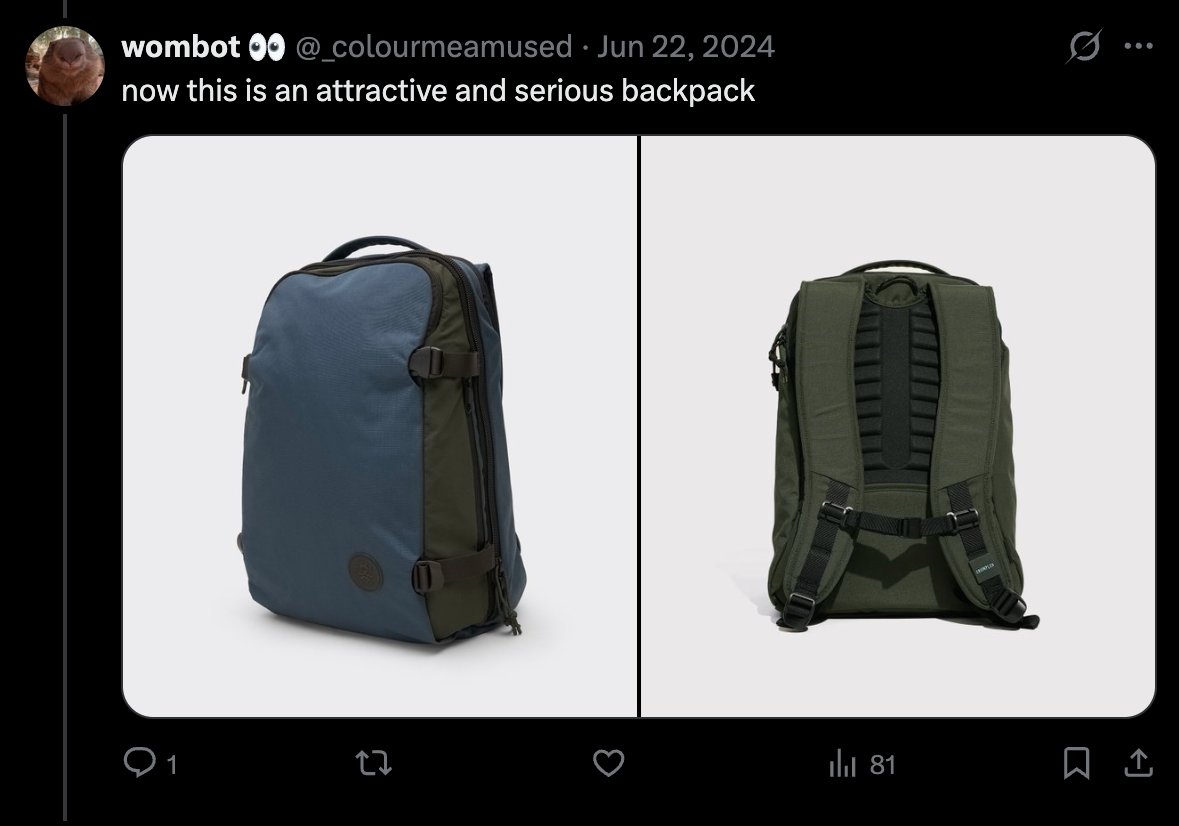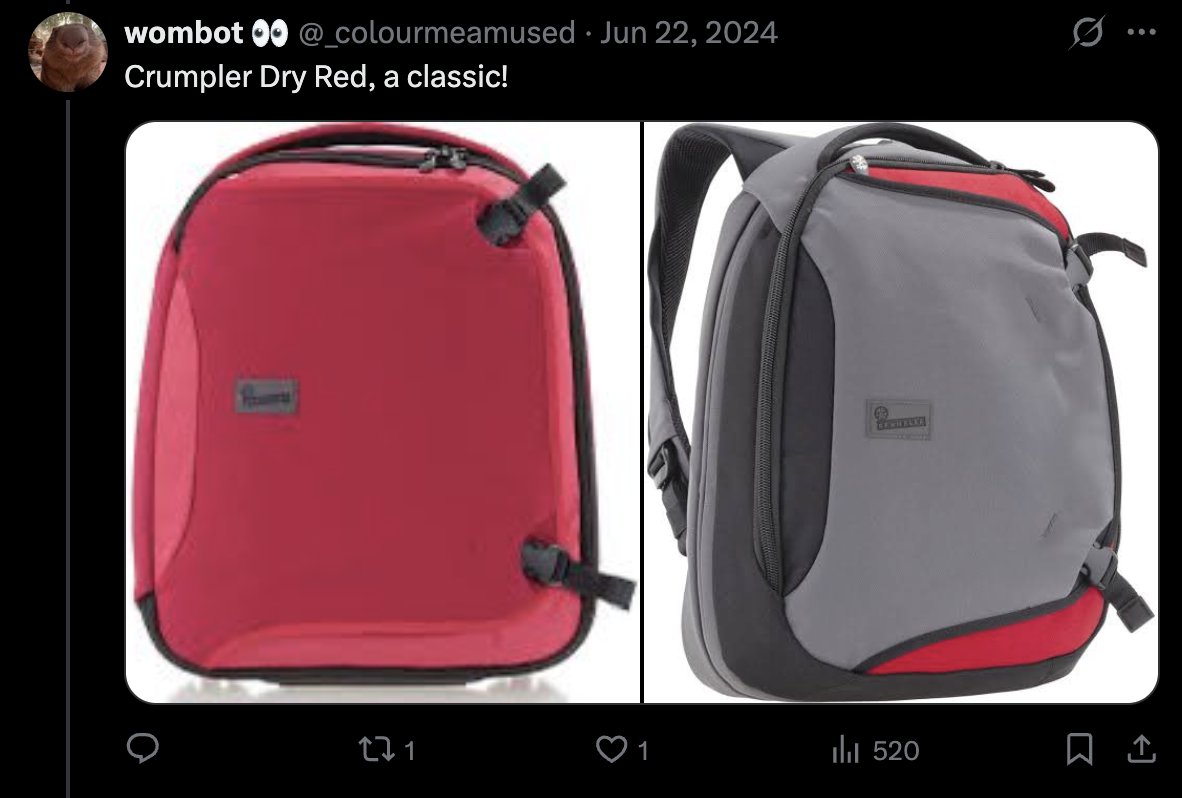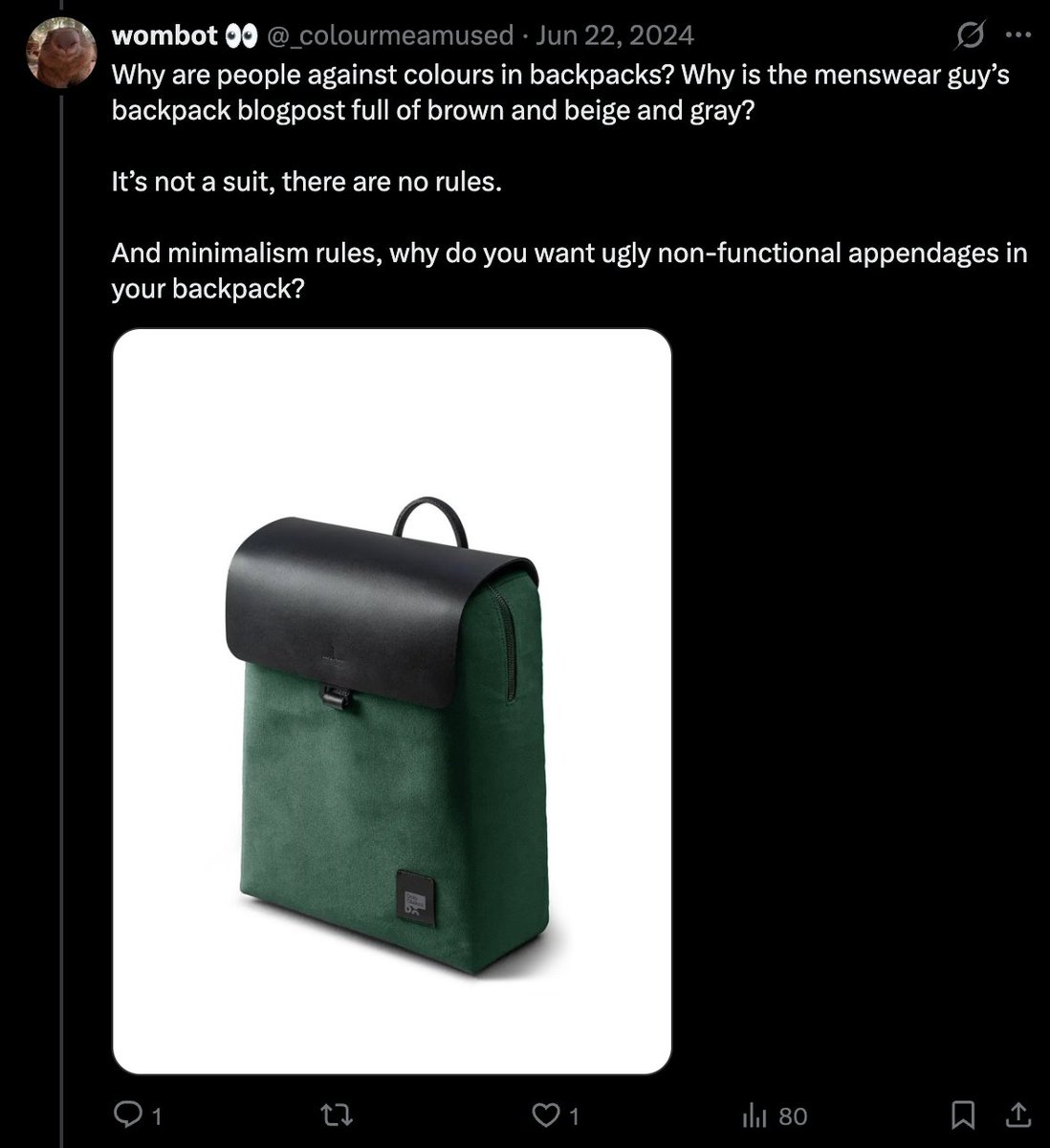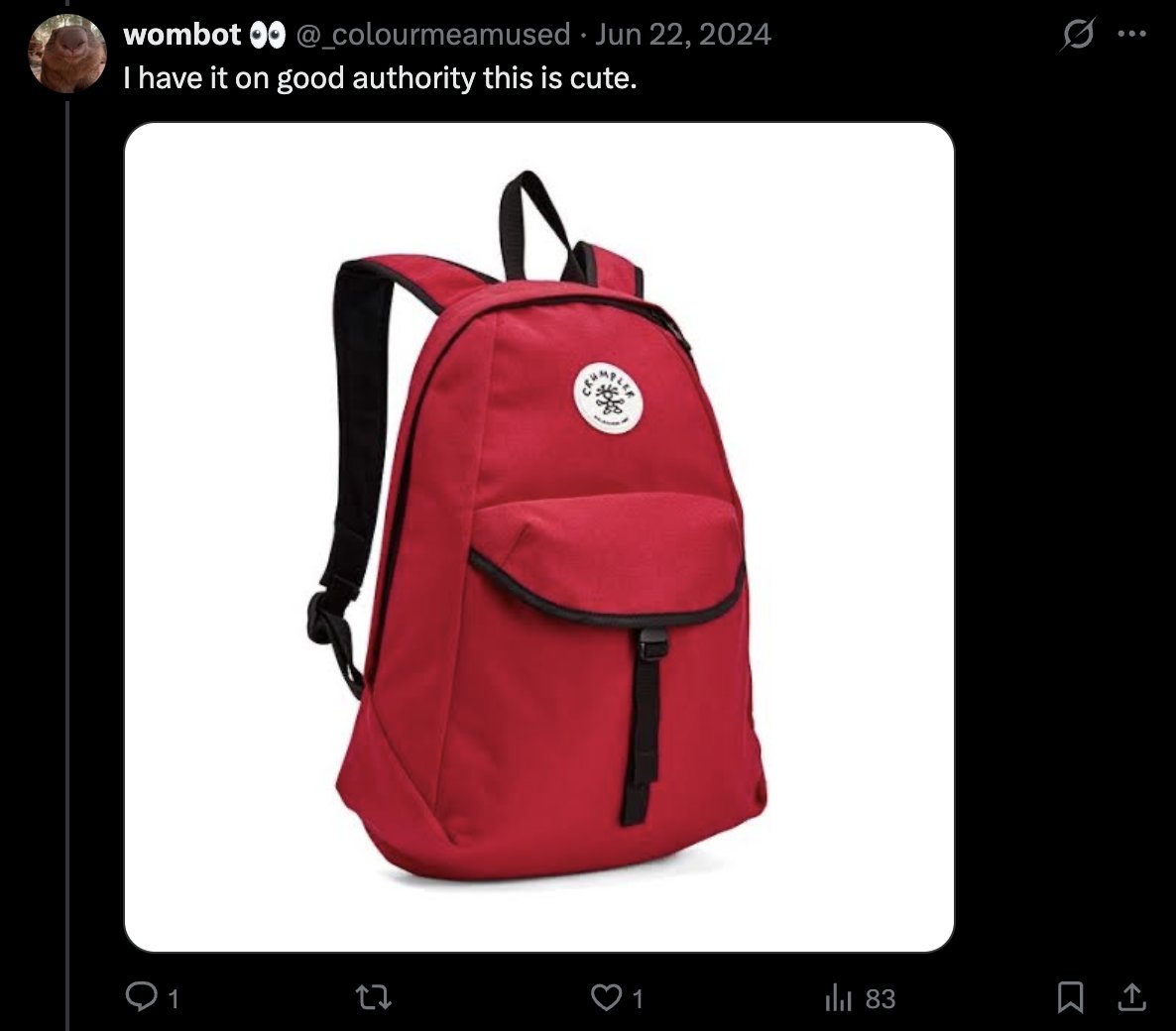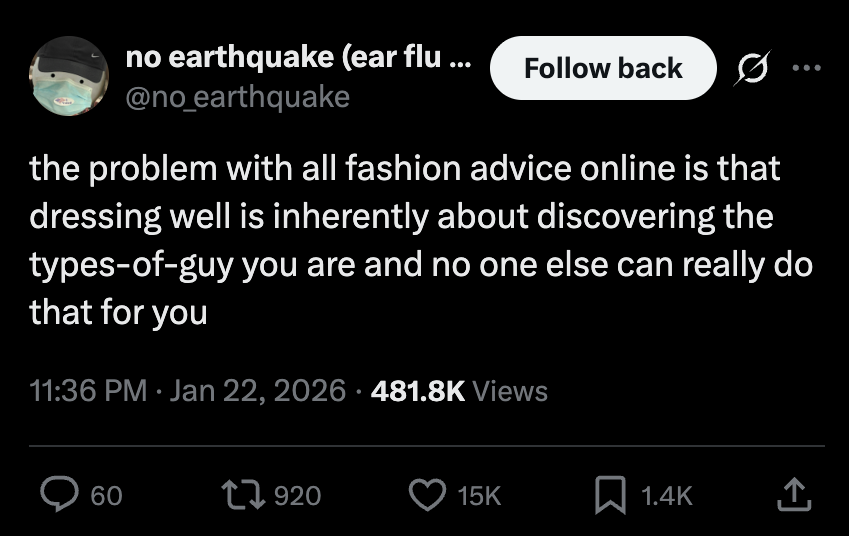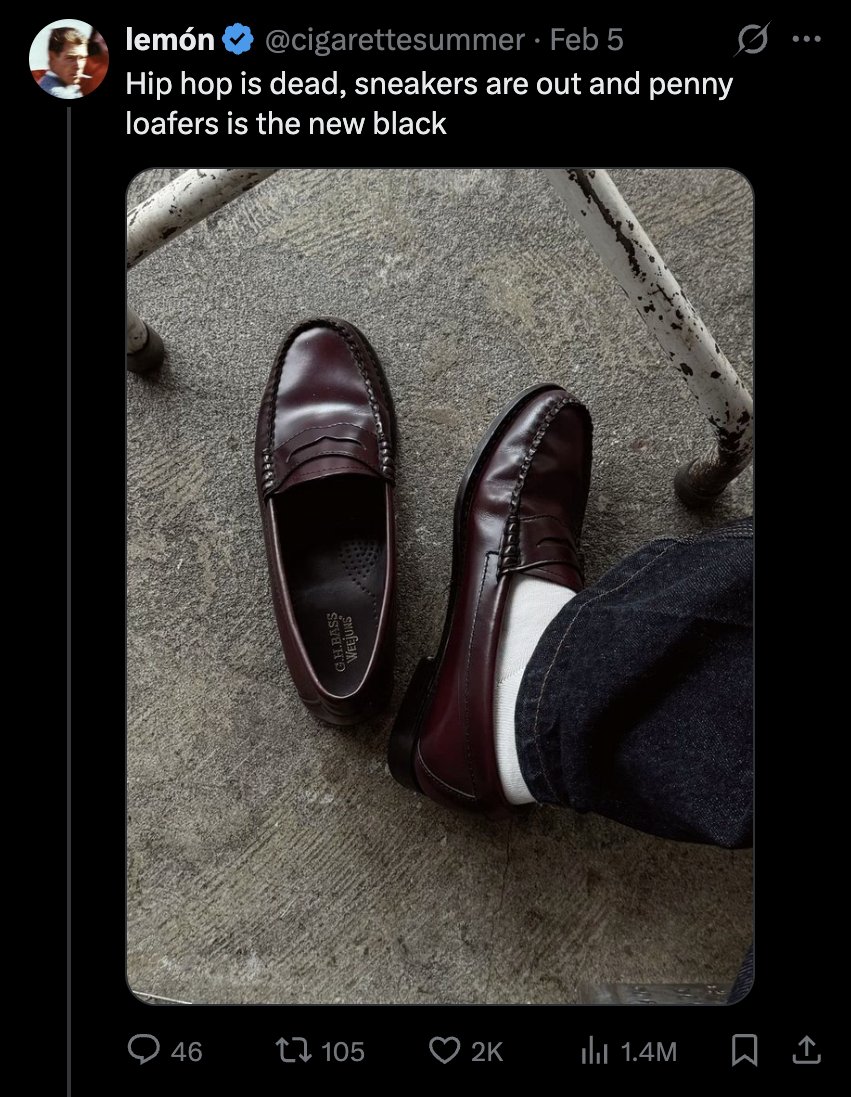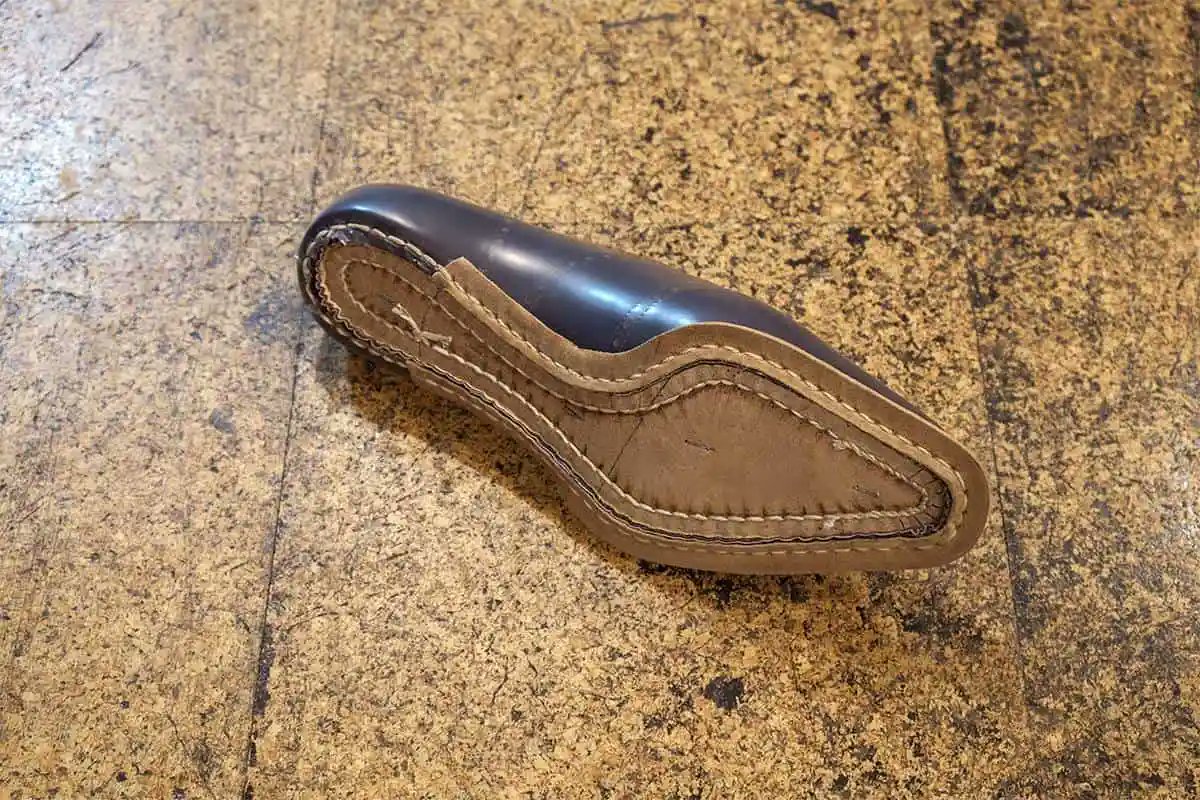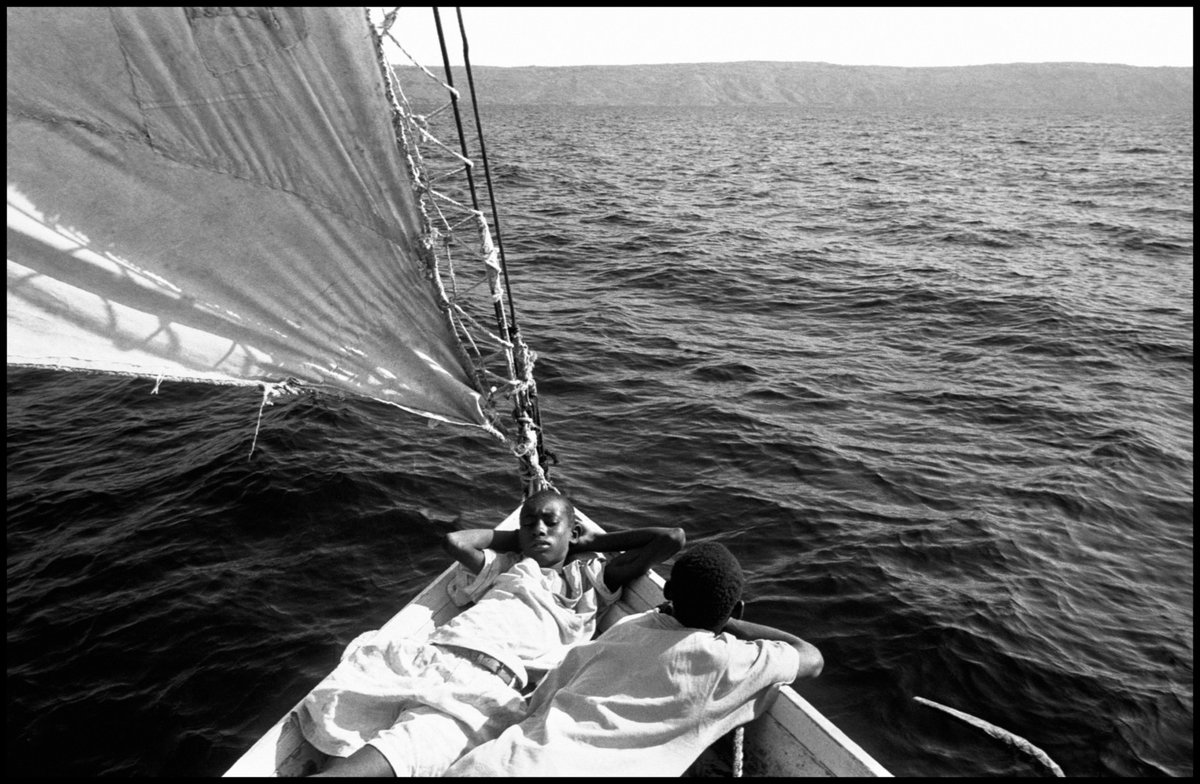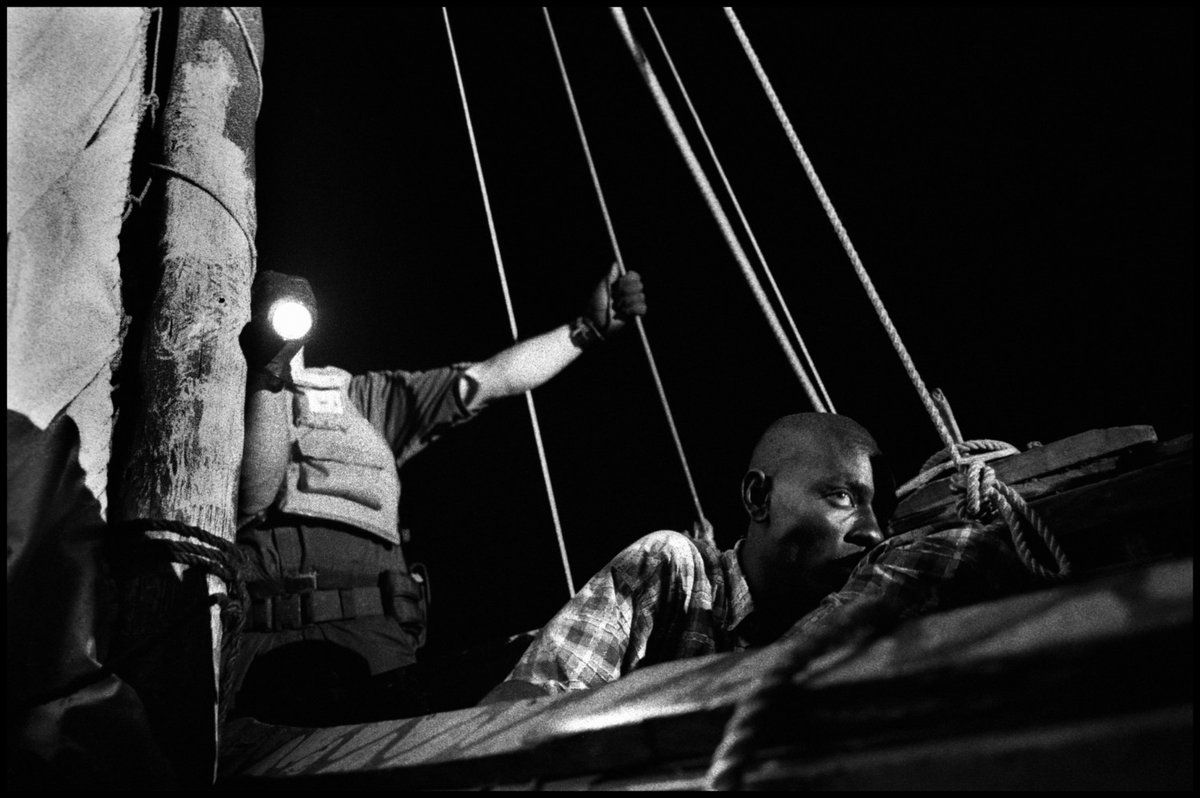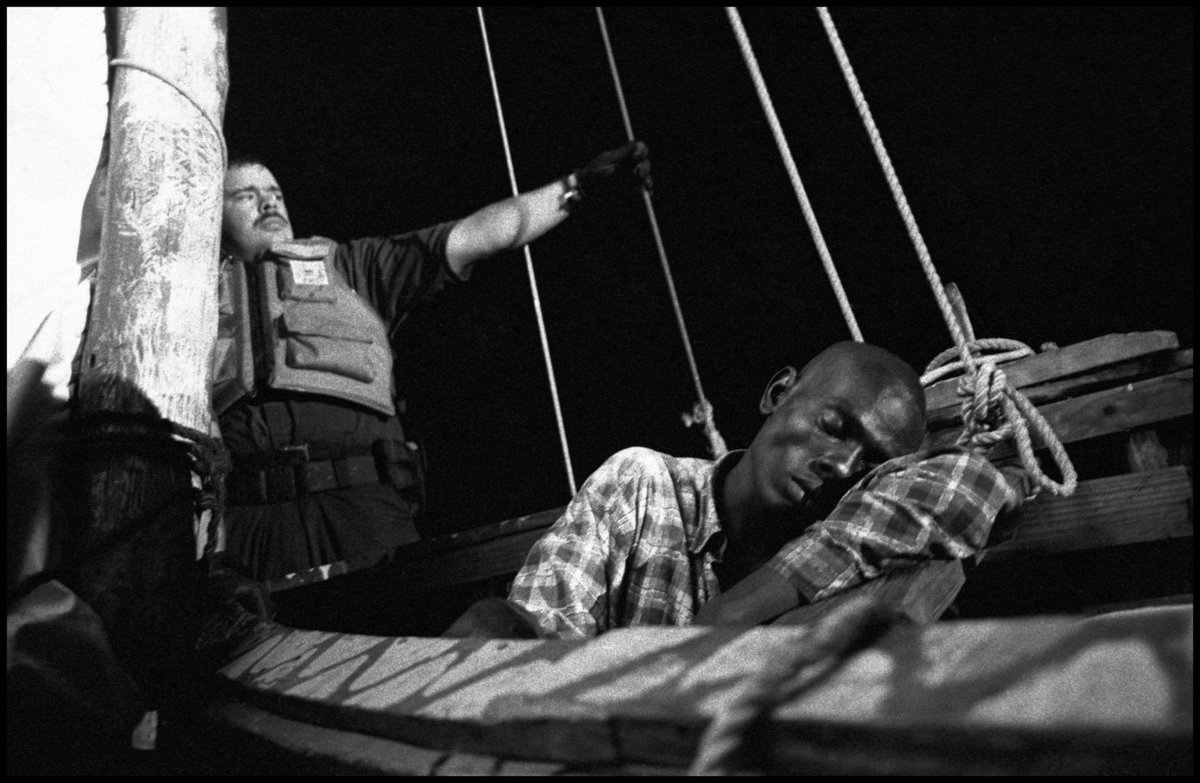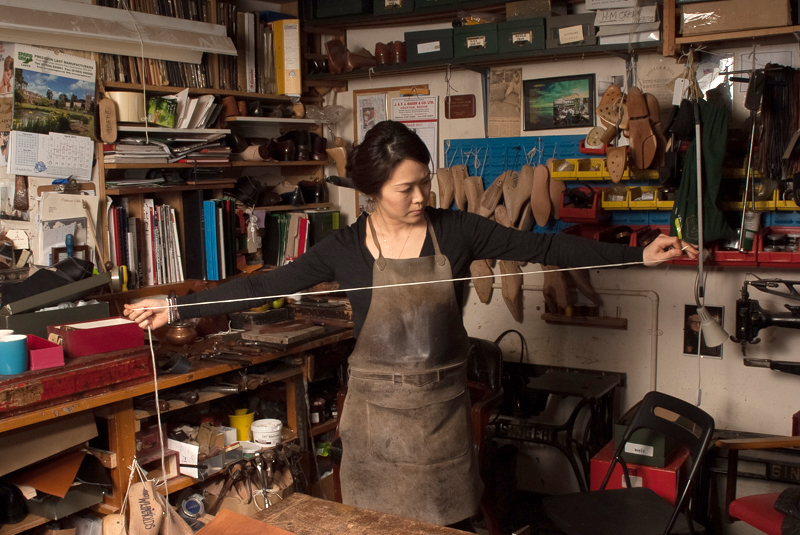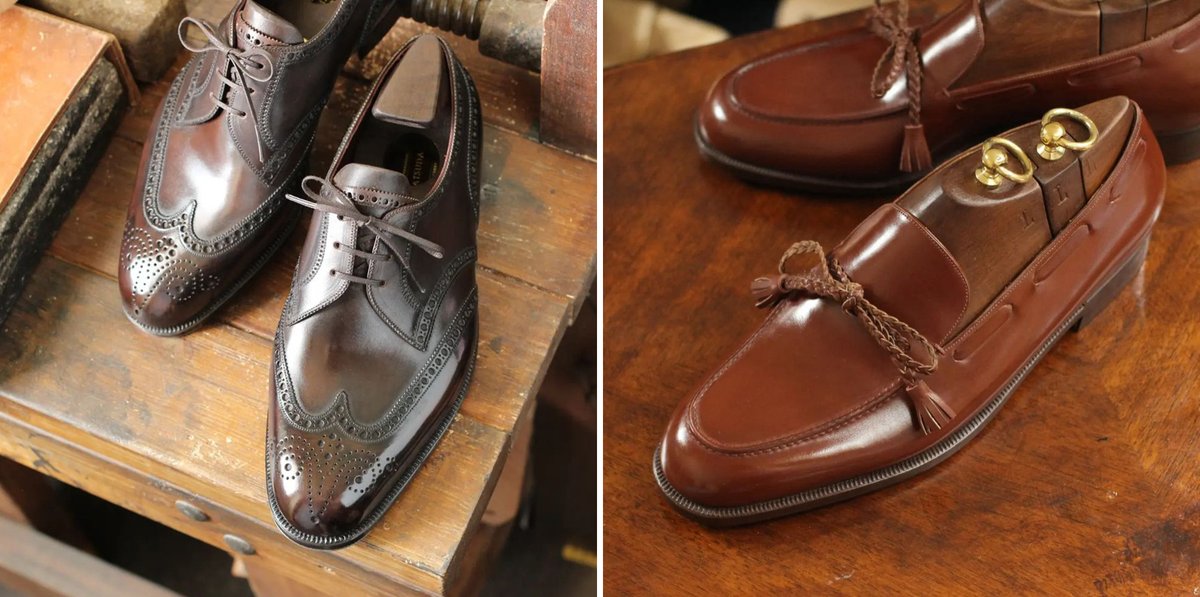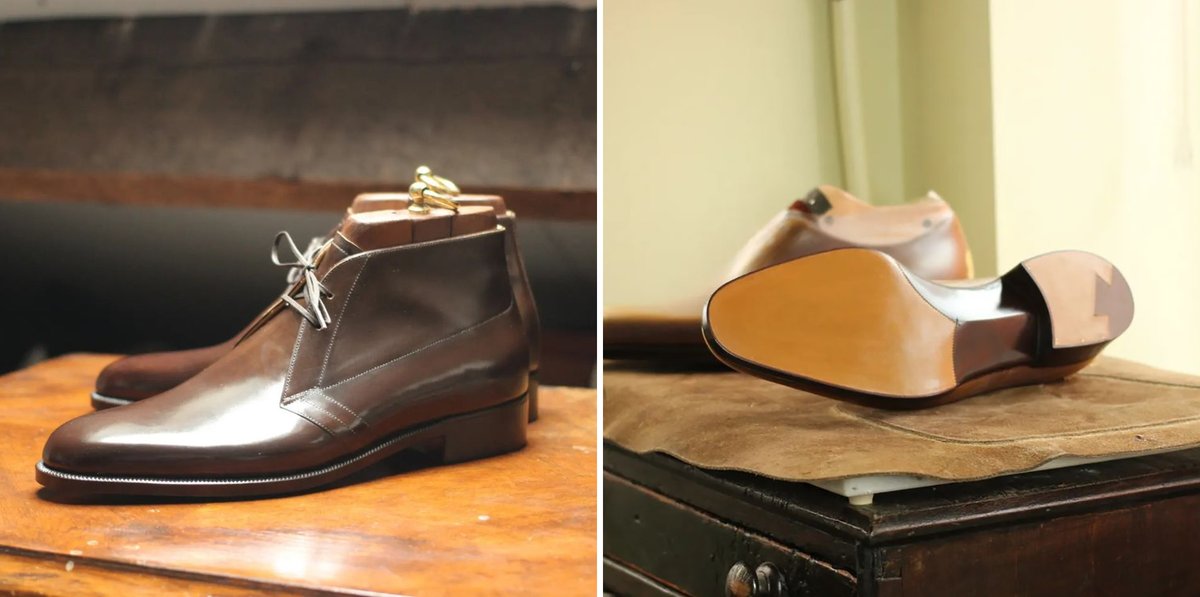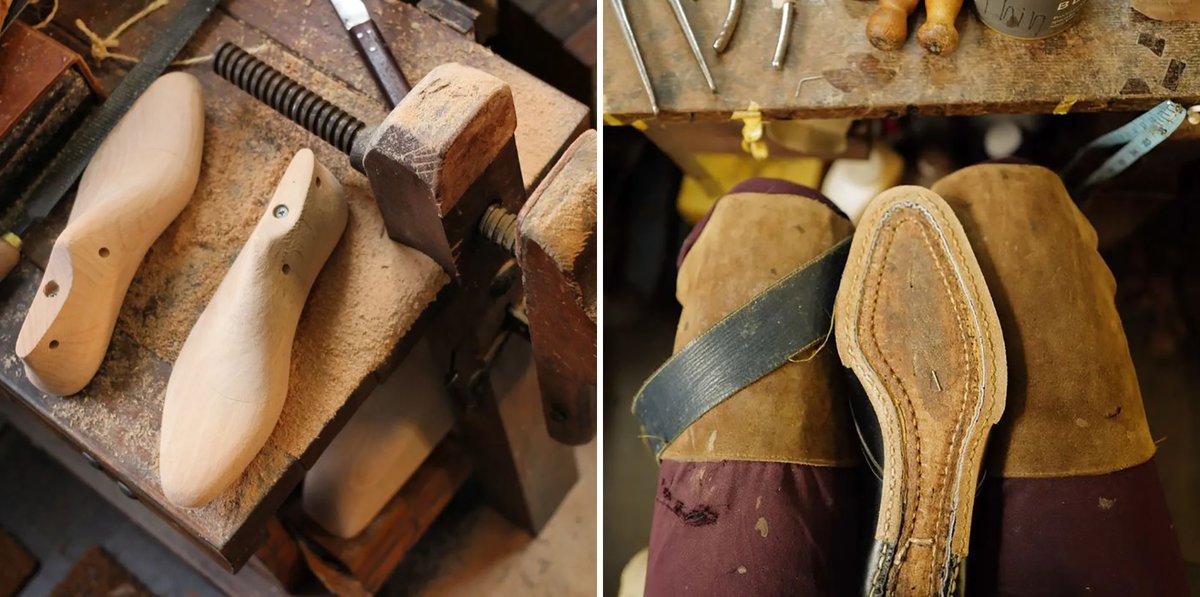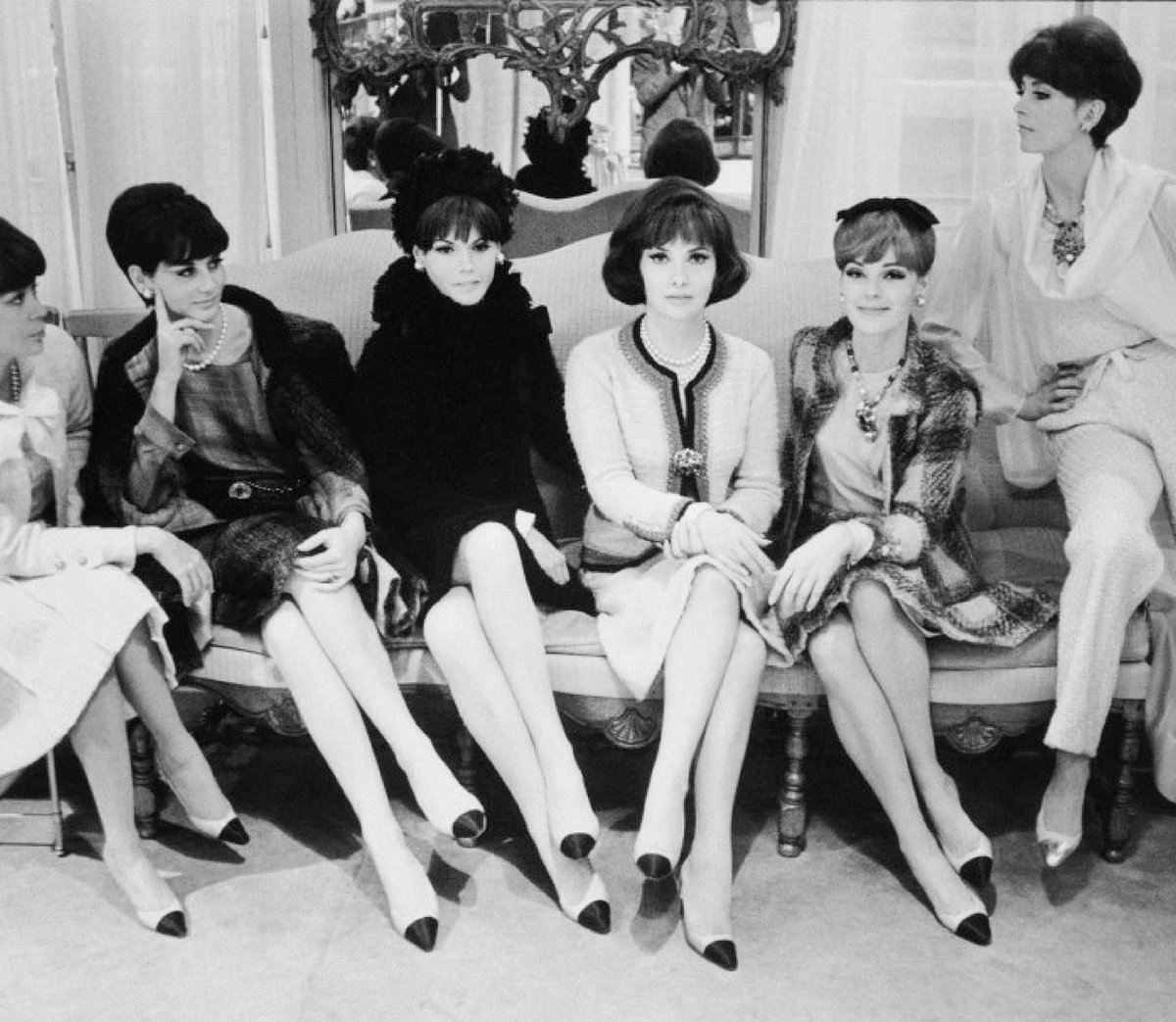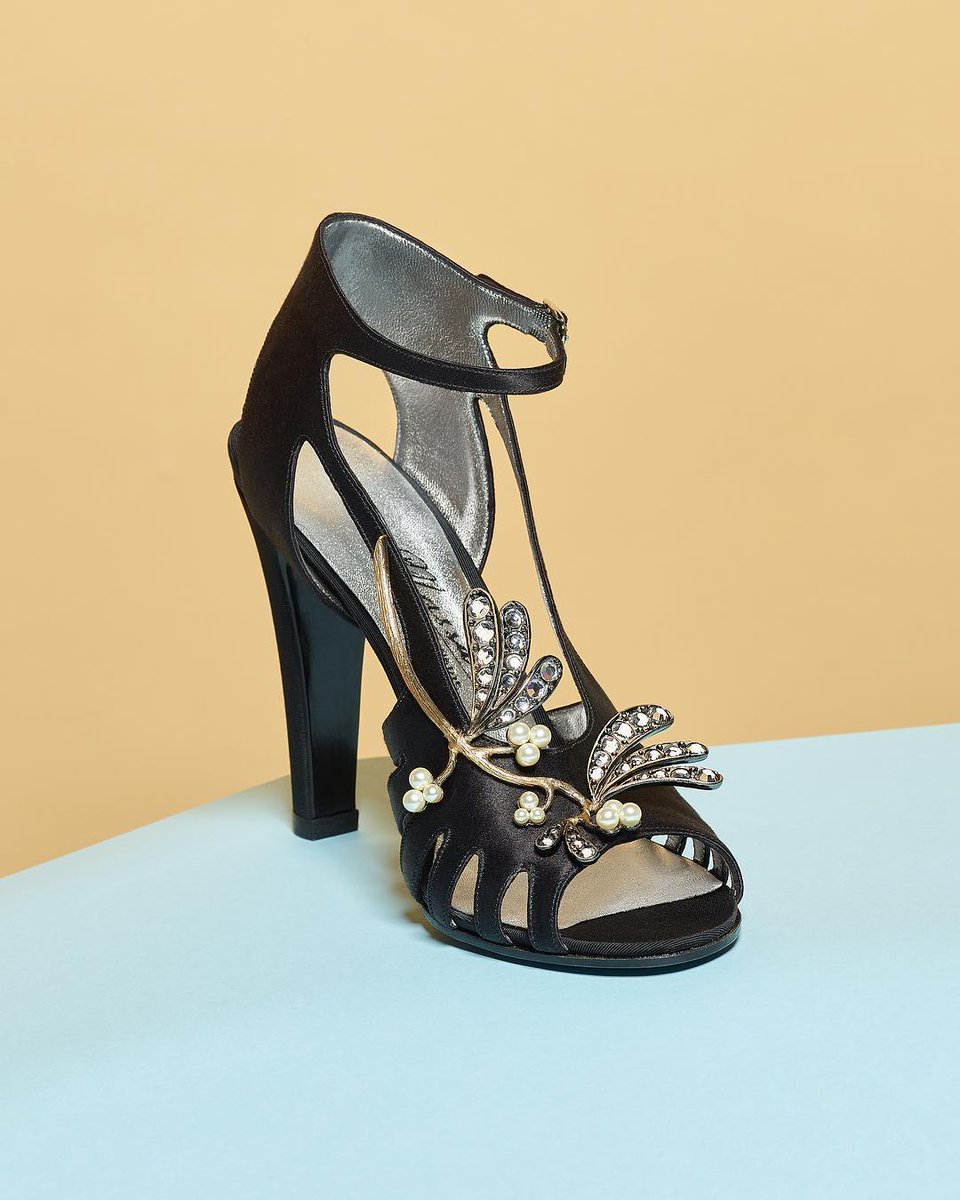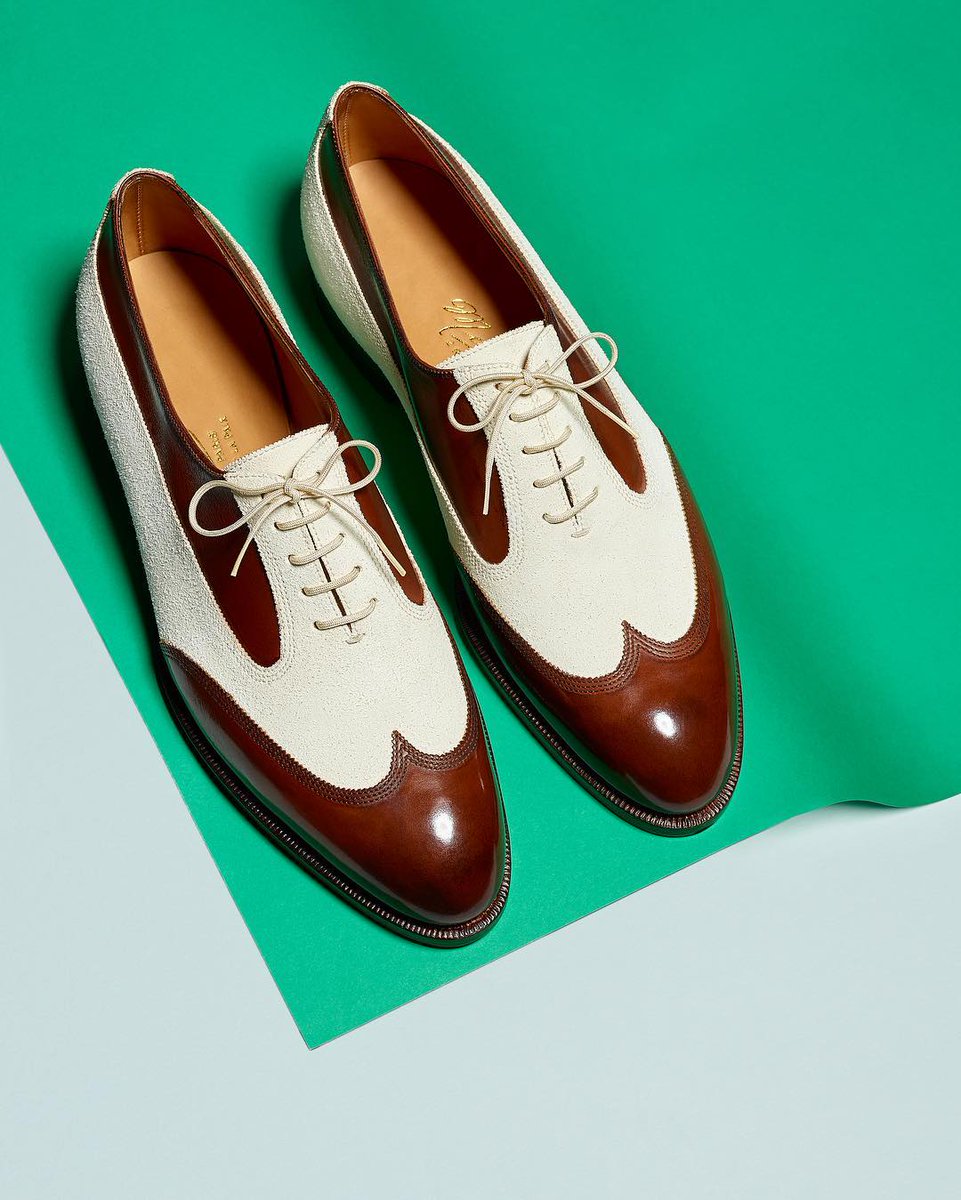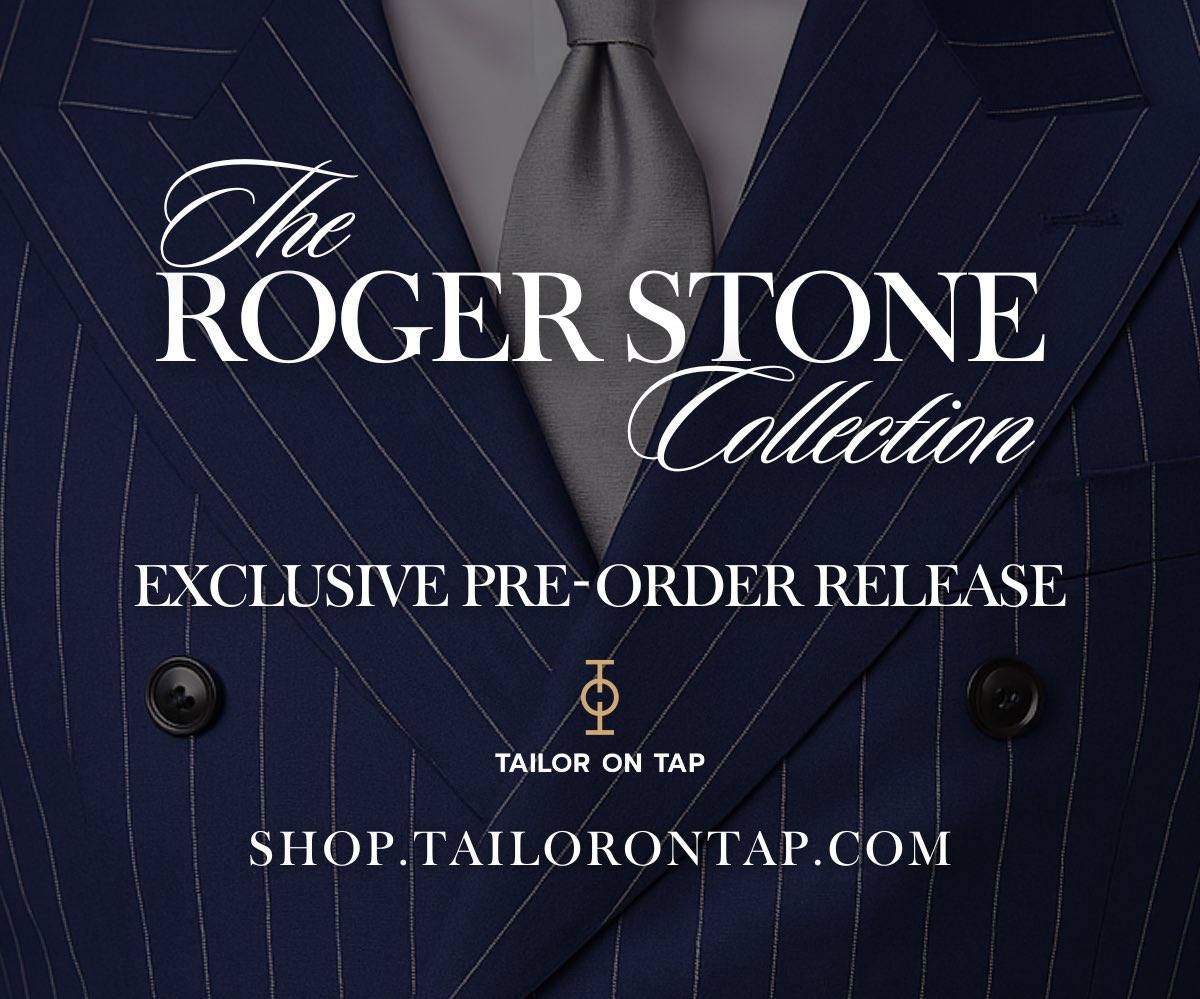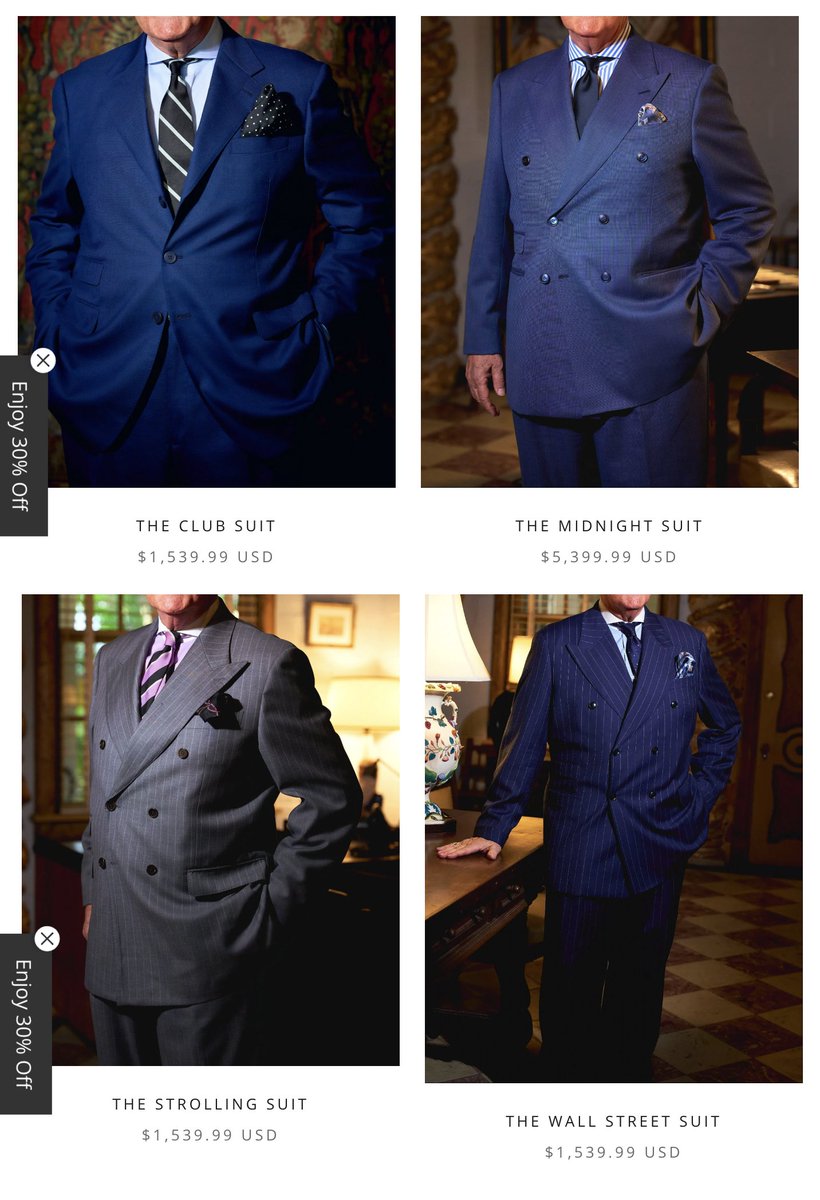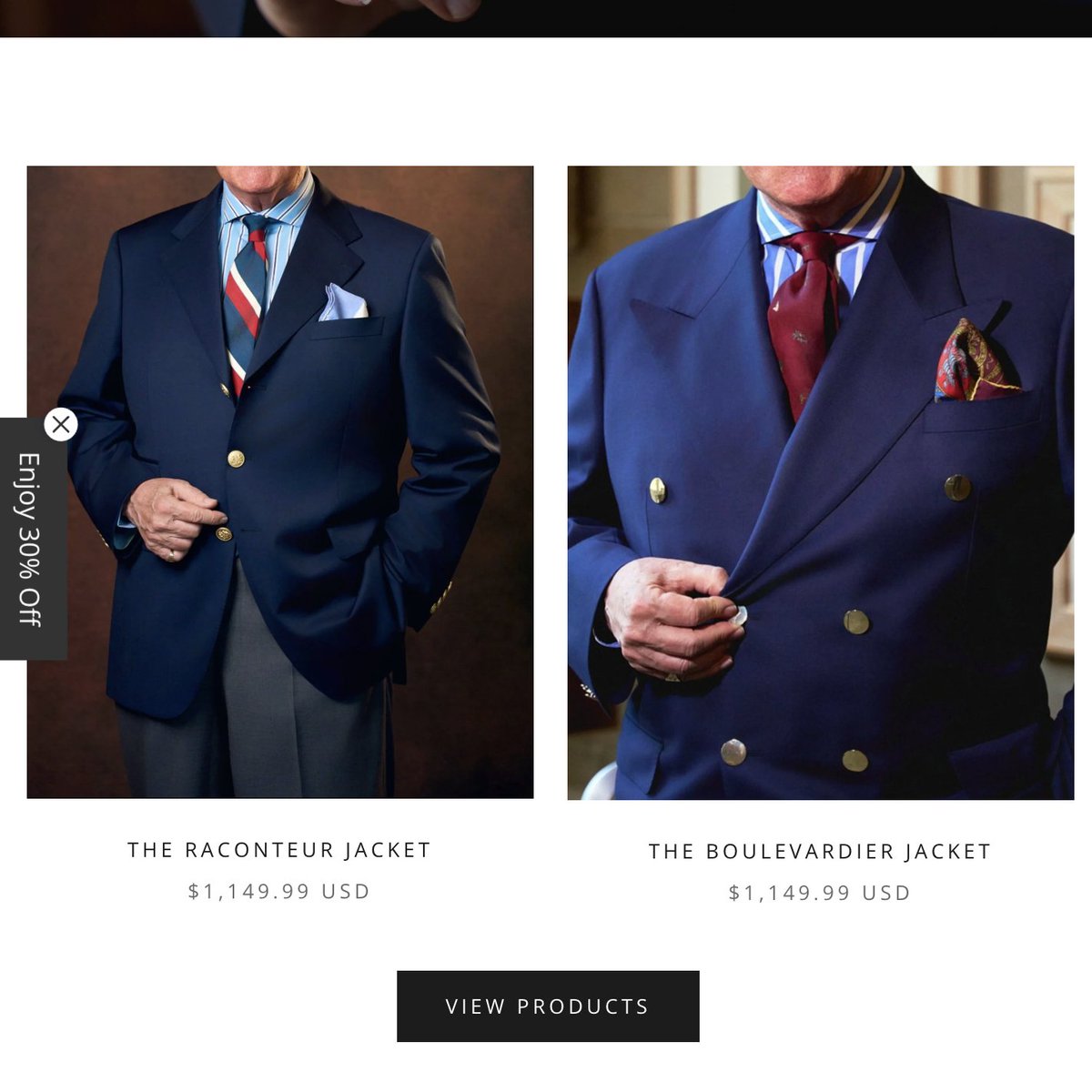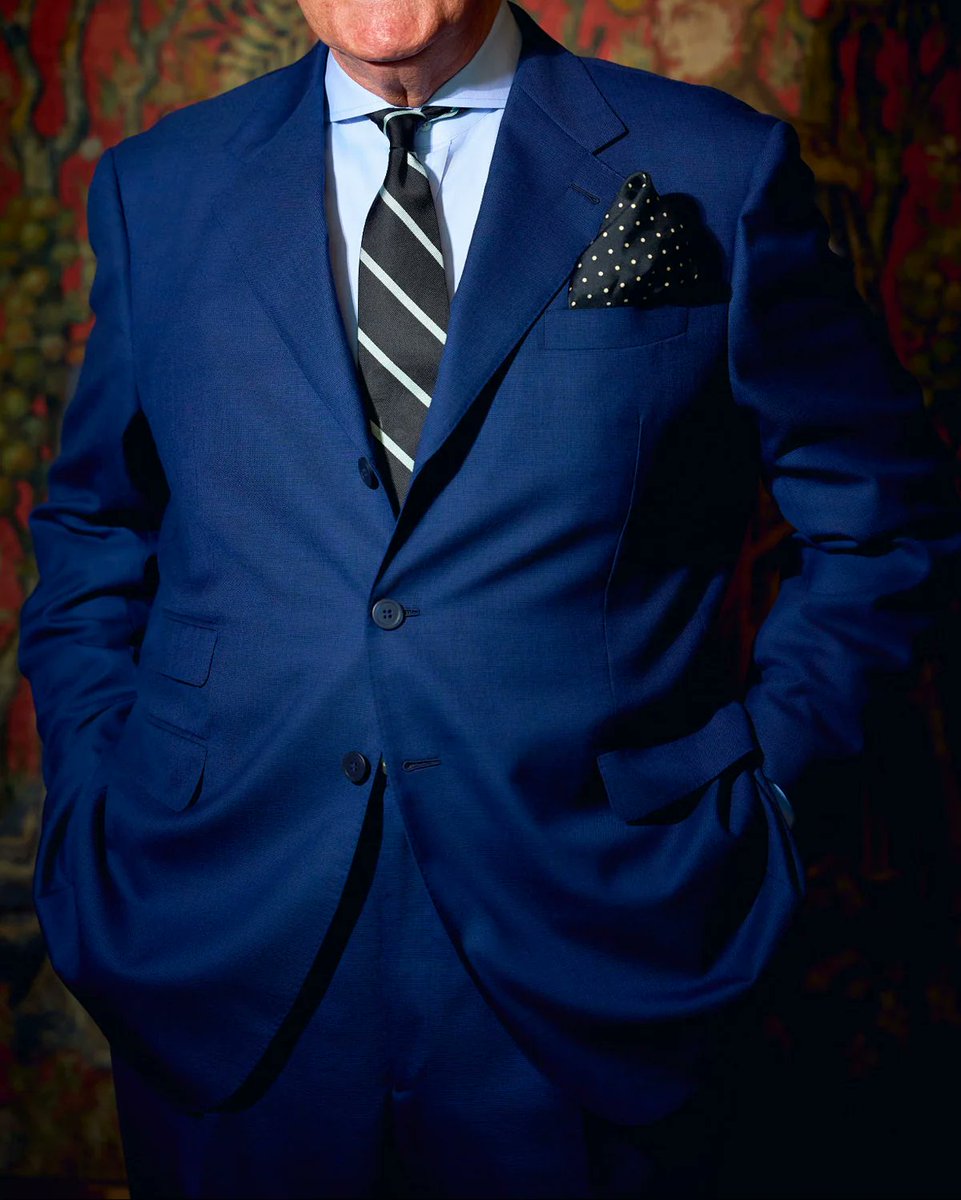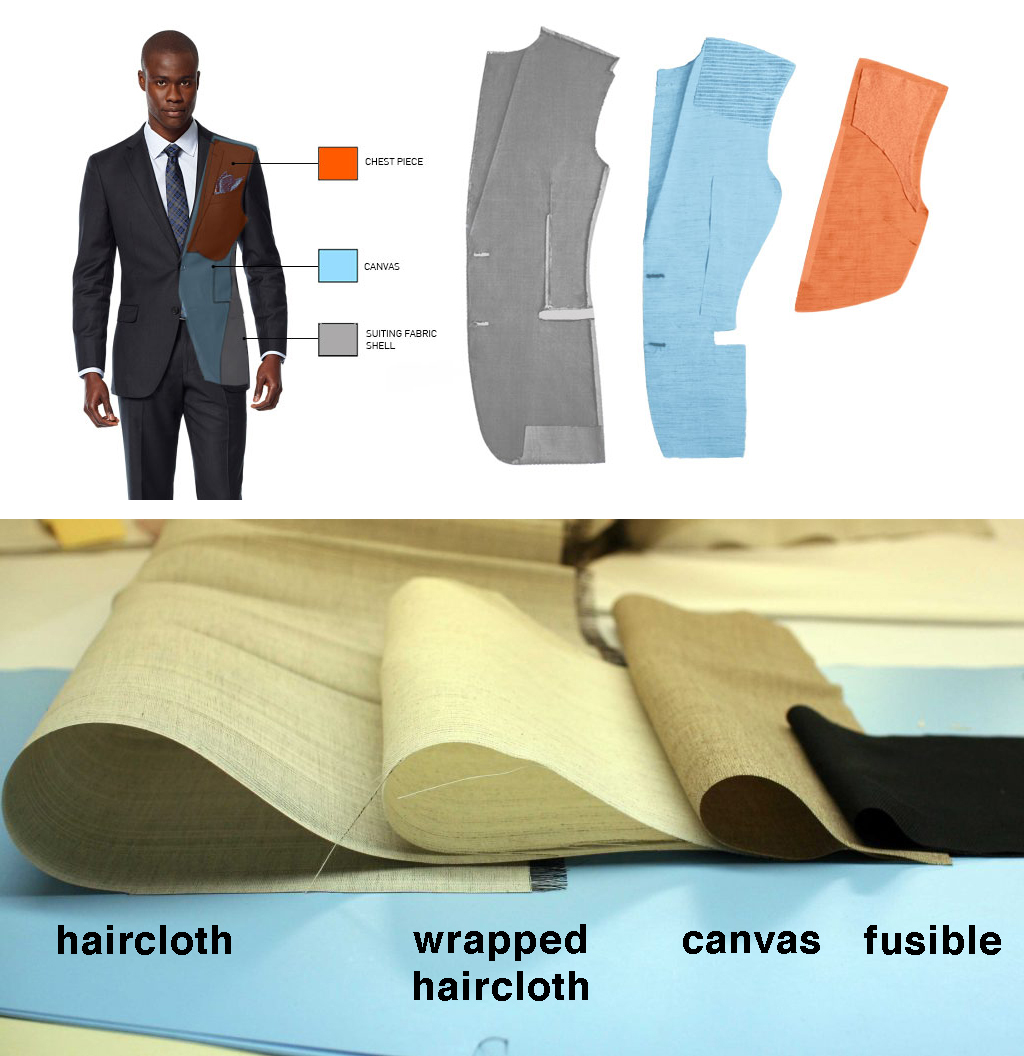i'll never get over how skinny jeans have become so normalized, they're now worn by conservatives lamenting the decline of traditional masculinity.
you don't even have to go as far back as the early 2000s to see how this used to be taboo for men
you don't even have to go as far back as the early 2000s to see how this used to be taboo for men

in 2011, Levi's released their "ex-girlfriend jeans," which caused an uproar. many said the reference to women and skinny fit rendered men feminine/gay. this was part of a long convo about the "decline of masculinity."
Michele White dedicated a chapter on these jeans in her book

Michele White dedicated a chapter on these jeans in her book


now one of the main voices around this political war is wearing jeans so skinny, his leg opening doesn't even cover the opening of his shoes. this would have been unthinkable 15 years ago, let alone around the turn of the 2000s. 



should add: it's easier to feel comfy in skinny jeans now bc of synthetics. in 2011, guys wore this fit in pure cotton, and they were unforgiving. but even the use of synthetics was once taboo for men! stretch jeans were for women. now lots of guys wear stretch skinny jeans
the most amazing thing about this thread is that it has now attracted normal, non-fashion dudes and social conservatives who are now defending their skinny jeans. pretty amazing!!
trying to be nice and assume that people either have not read this thread and/or perhaps are reading too quickly. nothing in this thread suggests that I'm against skinny jeans. i think they can be stylish if they fit your body type and style
https://twitter.com/girlwithascythe/status/1637705570231758850
i'm only pointing out the irony. 10 yrs ago, social conservatives hated skinny jeans as a sign of "low t, beta male hipsters" and a decline in traditional masculinity. now they wear the style while still lamenting the supposed decline in traditional masculinity.
• • •
Missing some Tweet in this thread? You can try to
force a refresh




